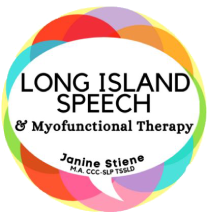Blog
Dementia
What is dementia?
Dementia is a group of symptoms related to memory loss and overall cognitive impairment. Most types of dementias continue to worsen and are usually irreversible.
Alzheimer’s disease is the most common and well-studied cause of dementia, affecting up to 70% of those diagnosed with dementia.
People with dementia often need help taking care of themselves. They may have difficulty communicating with others. Everyday activities such as grooming, preparing meals, and driving may become difficult.
What are some signs or symptoms of dementia?
The symptoms of dementia can be different depending on the diagnosis. In most cases, people with dementia have a gradual loss of memory and other cognitive functions.
As the disease gets worse, an individual may experience the following:
■Confusion
■Difficulty on the job
■Getting lost in familiar areas
■Problems handling personal affairs (e.g.,finances, housekeeping, grooming)
■Personality changes
■Depression (as the person recognizes his or her deficits)
■Significant memory loss
■Difficulty following simple directions
■Decreasing communication skills
■Difficulty swallowing
■By the final stages, inability to feed himself or herself, walk independently, or speak intelligibly.
What treatments are available for people with dementia?
Several medications exist that seem to slow down the progression of symptoms, but they do not reverse the disease. More often, behavioral interventions are used to help the person recall important information or performing daily activities.
A speech-language pathologist (SLP) can help the person with dementia use strategies to preserve communication and cognitive functioning for as long as possible. Examples of strategies include
■using written cues for completing tasks or to assist memory recall
■developing “memory books” to help recall personal information
■training family members or caregivers in how to communicate better with the person with dementia (see below for examples)
If the individual has swallowing problems, the SLP can work with the person to ensure safe swallowing. This may include teaching compensatory strategies or altering the person’s diet so that he or she can eat without risk of choking or illness.
The ultimate goal of any intervention is to preserve the person’s quality of life for as long as possible.
What can I do to communicate better with a person with dementia?
There are things that caregivers can do to help the person with dementia function more effectively in his or her daily life. Useful techniques include:
■repeating key information when talking with the person to help maintain focus
■giving the person choices rather than asking open-ended questions (e.g., “Would you like coffee or tea?” instead of “What do you want to drink?”)
■keeping information and questions short and simple
■using written cues for activities (such as how to get dressed or how to prepare a simple meal) and to remind the person about appointments or to take medications
■attending support groups to learn about how others cope with the stresses of caring for someone with dementia
■using adult day cares or respite cares to prevent caregiver burnout




